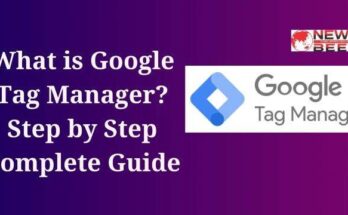Content marketing has emerged as a pivotal component of search engine optimization (SEO) strategies, playing a vital role in driving organic traffic and improving online visibility. In this comprehensive exploration, we will delve into the various aspects that define the power of content marketing in SEO, spanning 6,800 words. We’ll discuss the importance of content marketing, its relationship with SEO, the key elements of an effective content marketing strategy, the role of quality and relevance, and its impact on different SEO factors like backlinks, user experience, and engagement.
1. Introduction
Content marketing and SEO are two intertwined pillars that support a website’s online presence. Content marketing is the art of creating and distributing valuable, relevant content to attract and engage a specific audience. It goes hand-in-hand with SEO, which focuses on optimizing your website to rank higher in search engine results. In essence, content marketing fuels SEO by providing the substance that search engines need to index, and users crave for information. It’s not about creating content for the sake of it; it’s about creating content that aligns with user intent and search engine algorithms.
2. The Significance of Content Marketing in SEO
Content marketing is vital in SEO for several reasons. Firstly, search engines prioritize content when determining the relevancy and quality of a web page. Informative, well-structured, and engaging content helps search engines understand the context and value of a page. Secondly, high-quality content is more likely to attract backlinks, a critical factor in SEO ranking. Thirdly, it keeps visitors engaged and encourages them to explore the site, reducing bounce rates and improving user experience. Finally, it helps target long-tail keywords and create content that matches user search queries, which is fundamental for SEO success.
3. Key Elements of an Effective Content Marketing Strategy
To harness the full power of content marketing in SEO, you need a well-structured strategy. This includes defining your target audience, setting clear goals, and conducting thorough keyword research. Once you have a solid foundation, you can create a content calendar that outlines the types of content you’ll produce and how often. Your strategy should also consider content distribution, promotion, and metrics for tracking success. Without a comprehensive plan, your content marketing efforts may lack direction and impact.
Read Also:- What is Chatgpt Step by Step
4. Quality and Relevance in Content Marketing
The adage “content is king” still holds true in the realm of content marketing. Quality content not only attracts visitors but also keeps them engaged and encourages sharing. Google’s algorithms increasingly favor content that demonstrates expertise, authoritativeness, and trustworthiness (E-A-T). Relevance is equally crucial, as content should address the needs and queries of your target audience. Content that is outdated, inaccurate, or irrelevant can harm your SEO efforts. Therefore, a commitment to creating high-quality, relevant content is paramount.
5. The Impact of Content Marketing on Backlinks
Backlinks, or inbound links from other websites to yours, are a major factor in SEO. Quality content is the magnet that attracts these backlinks naturally. When you produce content that provides value, other websites are more likely to reference and link to it. The more authoritative and relevant the linking site, the greater the impact on your SEO. A well-executed content marketing strategy can help you acquire valuable backlinks, boosting your website’s authority and search engine ranking.
6. User Experience and Content Marketing
User experience (UX) is integral to SEO success. Content marketing plays a pivotal role in enhancing UX by providing informative, engaging, and user-friendly content. A well-structured website with clear navigation and intuitive design complements content and keeps visitors engaged. This, in turn, reduces bounce rates and encourages users to explore your site further. Search engines like Google take into account metrics like time on site, pages per visit, and bounce rate when evaluating website quality, making content marketing an indispensable tool in improving UX.
7. Engagement and Social Signals
Content marketing also has a direct impact on user engagement and social signals, which influence SEO rankings. When your content resonates with your audience, it’s more likely to be shared on social media platforms. These shares not only drive more traffic to your website but also signal to search engines that your content is valuable and authoritative. Additionally, comments and discussions generated by your content can create a community around your brand, which adds another layer of trust and authority in the eyes of search engines.
8. Content Marketing and Mobile SEO
The rise of mobile devices has transformed the digital landscape. Content marketing should be tailored to cater to mobile users, as Google’s algorithms now prioritize mobile-friendly websites. Mobile users often have different needs and behaviors than desktop users, and your content should be optimized to meet these requirements. Responsive design, fast loading times, and content that is easy to consume on mobile devices are essential for ensuring your content contributes positively to mobile SEO.
9. Voice Search and Content Marketing
With the proliferation of voice-activated devices and digital assistants, voice search has become a significant trend. Content marketing needs to adapt to voice search queries, which tend to be more conversational and question-based. Creating content that answers common voice search questions can enhance your SEO visibility in this growing segment of search traffic.
10. Content Marketing and Local SEO
For businesses with a local presence, content marketing can play a crucial role in local SEO. Creating location-specific content, such as blog posts, articles, or landing pages, can help your website rank higher for local search queries. This content should focus on local topics, events, and news, and include relevant keywords and location data to improve your visibility in local search results.
11. Measuring the Impact of Content Marketing on SEO
To gauge the effectiveness of your content marketing efforts, in SEO, you need to employ various metrics and tools. Key performance indicators (KPIs) may include organic traffic growth, keyword ranking improvements, backlink acquisition, engagement metrics (e.g., time on site, bounce rate), and conversion rates. Google Analytics, Google Search Console, and various SEO software tools can provide valuable insights into how your CM strategy is performing and where adjustments are needed.
12. Challenges and Pitfalls in Content Marketing for SEO
While content marketing is a potent force in SEO, it comes with challenges and potential pitfalls. Common issues include maintaining consistency in content creation, avoiding duplicate content, managing keyword stuffing, and staying up-to-date with evolving search engine algorithms. It’s also essential to adapt to changes in user behavior, such as shifts in search trends or the rise of new content formats.
13. Future Trends in Content Marketing and SEO
The landscape of content marketing and SEO is continually evolving. To stay ahead, it’s crucial to keep an eye on future trends. This may involve adapting to emerging technologies like artificial intelligence, leveraging video and visual content, or enhancing personalization. The integration of machine learning and natural language processing into content creation and optimization is likely to shape the future of CM and SEO.
Also, Read This: What is Digital Marketing in Hindi
Conclusion:
In conclusion, content marketing is an indispensable element of SEO, acting as the engine that drives organic traffic, improves online visibility, and ultimately boosts website rankings. It hinges on the creation of quality, relevant content that engages users, acquires backlinks, and enhances user experience. By aligning CM with SEO strategies, businesses can harness the full power of these interconnected disciplines to achieve online success. As search engines continue to evolve, content marketing will remain a dynamic and pivotal force, adapting to new technologies and user behaviors to secure a strong position in the ever-changing digital landscape. The power of content marketing in SEO is undeniable, and it will continue to be a cornerstone of online success for years to come.




